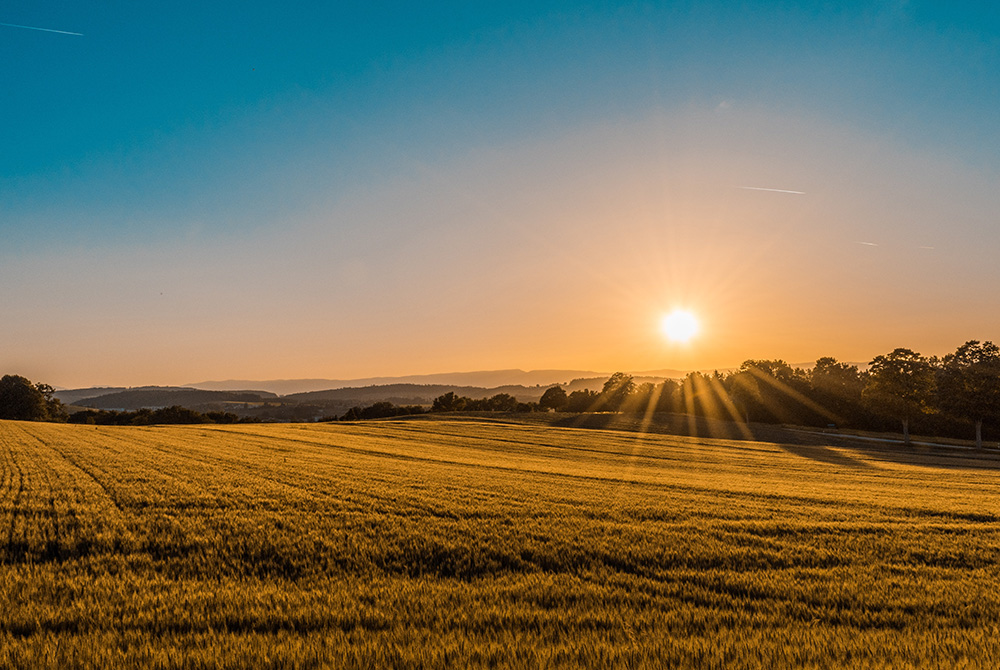
(Unsplash/Federico Respini)
We have been living for over a year already in these pandemic times. It is at this time that we become very conscious of our daily routine — especially we religious who have a fixed daily schedule. Day in and day out we get up, we go to lauds, we attend holy Mass, we eat our breakfast, we go to work, we say our midday prayers, we take a nap, we return to work, we say our vespers, we do our one-hour lectio, we eat supper, we pray compline and prepare for bed. And since travels, visits, outside meetings and social gatherings do not happen at this time, there is hardly any interruption to our routine activities.
It is at this time that we should reflect on the theology of everyday life (or quotidiano). To me it means that everyday life is holy, is sacred, is the actual juncture where God meets us, where we encounter God, where we experience God's love, God's grace, God's mercy and it is the venue of our own conversion, of our own transformation. We do not need an extraordinary event or a special moment of divine intervention, sacred ritual, or even a special place for us to have an experience of God.
Where, but in our everyday life, did we experience a kind gesture of our superior; a co-sister who listened to us, gave us solace and comfort, or even made an extraordinary generous gesture? But is it not also in our everyday life that we offended someone, scolded a lay partner in public, became impatient, became angry, became envious or jealous? Is it not in our everyday life that someone hurt us, betrayed our confidence, bore false witness against us, spread rumors about us, and the like? It is also in our everyday life that we are able to forgive and to be forgiven, to help and to be helped.
Advertisement
Is it not during our everyday life that we hear of a close friend, a relative, or a co-worker dying of COVID-19, making us experience this pandemic closer and closer to home? Before this, COVID-19 was an accepted reality, but a far away reality. Now it has become a part of our everyday reality. So we start to do consciously what we automatically do every day: put on a facemask, and maybe face shield, wash our hands thoroughly, take advantage of an alcohol dispenser to drench our hands thoroughly, practice physical distancing, and so on.
The realization of our mortality makes us appreciate life — not in the abstract but in our everyday life. When we wake up in the morning, we realize that although God did not promise us a tomorrow, here we are awakening to a new day. After taking a shower, we are amazed at the refreshed feeling it gives us. As we are on our way to the chapel, we pass by a familiar garden which we used to see with our peripheral vision. But now we stop. We see the beauty of the gardenia we have seen every day, but now we pause to admire its velvet petals and to breathe its unique fragrance. We look up at the blue sky and are amazed that there is no speck of cloud to be seen. We allow the warmth of the sun to bathe our face, hoping to absorb its vitamin D.
And yes — is it not in our everyday life that we get a sudden insight into ourselves or into a situation that is the beginning of our transformation, of a Damascus experience, a metanoia, a return to God's embrace? It is in our everyday life that we experience the consolation that rains down to water our arid spiritual life in the desert of our desolation.
When we spend our time feeling guilty about the past and being anxious about the future, we are missing the blessing of the now. … It is in the here and now that we will recognize God's visitation when it happens.
Zen teachers, when asked by disciples what they should do to achieve "Buddhahood," reply that they should do only just what they are doing: washing a plate, sweeping the floor — and in our context — writing on our computer, auditing a financial statement, preparing a community pantry, yes even viewing a Korean drama!
The most important attitude in the theology of everyday life is: mindfulness, or as Eckhart Tolle prefers to say: conscious awareness, meaning to live moment to moment, to focus in the here and now. Yes, because the past is no longer real because it is past, the future is not real because it has yet to be. So, the only reality is the here and now. When we spend our time feeling guilty about the past and being anxious about the future, we are missing the blessing of the now which contains all opportunities, challenges and realizations. It is in the here and now that we will recognize God's visitation when it happens.
Now that I am 83, I realize that I have overshot the biblical length of life — "80, if you are strong" (Psalm 90:10) — and that every day is a "bonus." My prayer on awakening is:
"Lord, thank you for this beautiful day. Thank you that I am still alive and relatively healthy on this beautiful day. Help me to live this day with conscious awareness, compassion and joy. Amen."







